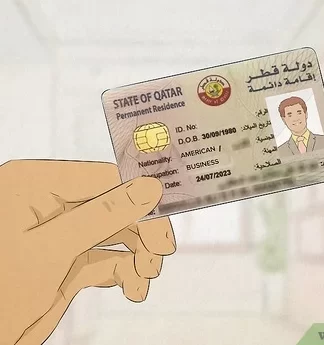
The Ministry of Administrative Development, Labour and Social Affairs (MADLSA) has put a new ruling that employees will have the right to switch jobs without getting a No-Objection Certificate (NOC) from their employers if the company fails to pay their monthly salaries within seven days of the due date.
According to an official from the MADLSA, a decision to this effect has been taken at the ministerial level and it will be implemented soon.
The official stated that the government wants all companies operating in the country to pay monthly salaries to their employees on time or in certain cases within seven days from the due date. If they fail to do so, employees of such companies will have the right to change jobs even if they have not completed the contract period, as reported by the Qatar Tribune.
He noted that few companies in Qatar are yet to adopt the Wage Protection System (WPS), adding that the government is taking action to identify those companies.
Many cases have come to light where abusive employers were found to be indulging in the illegal practice of not paying their employees. The issue has brought a lot of negative attention to Qatar, many international news outlets dubbed Qatar as a destination of modern-day slavery. Due to the acts of a few abusive and exploitative employers Qatar’s image when it comes to protecting workers’ rights has been left with a black spot.
What the law says:
According to Article 65 of the ‘current labour law’:
The Worker shall be entitled to the wages specified in the service contract and if the contract does not specify the wage the worker shall be entitled to the wage specified in the work regulations.
If the wage is not specified in accordance with the preceding paragraph the worker shall be entitled to a wage equivalent to the wage specified for work of a similar type in the establishment and otherwise in accordance with the custom applicable to the profession in the place of performance of the work and if there is no such custom the judge shall specify the wage in accordance with the requirements of justice.
This means that every worker is entitled to wages in return for his or her work, if an employer refuses to pay the wages, he or she is doing so in absolute contravention of the law. Furthermore Article 70 of the labour law states:
Any part of the wage to which the worker is entitled may not be attached and the payment thereof may not be withheld except for the execution of a judicial decision.
In case of attachment in execution of a judgment the Sharia alimony debt shall have priority over all other debts and the total of the sums attached shall not exceed 35% of the wage of the indebted worker.
The employer may not charge any interest on the loan he may grant to the worker and shall not deduct more than 10% from the wage of the worker in settlement of the loan.
The total of the sums to be deducted from the wage of the worker in settlement of the deductibles and debts due from him shall not exceed 50% of his aggregate wage. If the percentage which shall be deducted from the wage of the worker within one month exceeds this percentage the deduction of the excess percentage shall be deferred to the following month or months.
This clearly proves that withholding wages or salaries of employees for reasons other than allowed by the law is illegal and a violation of the employee’s rights.
Who is the most vulnerable to this exploitative practice?
Over 1.5 million foreigners work in Qatar, while the highly qualified and skilled workers may be having a time of their lives while working in Qatar for many prominent firms, the same isn’t true for the low-skilled or manual workers who are working in Qatar. The low-skilled segment of workers is very vulnerable to this abusive practice. A large number of low-skilled workers from the Asian countries like India, Nepal, Bangladesh, Sri Lanka are present in Qatar. One of the reasons that makes this group vulnerable is their low education and hence their unawareness about the legality or illegality of what they are being put through. This leads them to falling prey to exploitative employers who lure them into Qatar under false pretences. Once in Qatar their salaries are withheld citing one excuse or another, the Kafala law further compounds their problems as they cannot leave the country or change the employer without the consent of the employer.
Circumvention of the Wage Protection System (WPS):
In February 2015, following much deliberation the authorities approved the amendments to the labour law and one of the changes sought to fix the menace of ‘salary withholding’. To address this issue of non-payment of salaries to workers the authorities announced the Wage Protection System, modelled along similar systems that are implemented in Saudi Arabia and the UAE. The system was implemented in late 2015. According to the system, employers must ensure that the employees receive their salaries in their respective bank accounts well before the due date and the same should be verifiable by the Ministry of Labour and Social Affairs and the Ministry of Interior. Failure to comply with the WPS rules makes employers liable to punishment, fines, and denial of work visas. The system regardless of how well intentioned has its loop holes, which are being exploited by the abusive employers. For instance, there is no way to verify whether the payments that are deposited in the bank accounts of the workers are in fact being withdrawn by the workers themselves, the system is limited to ascertaining the arrival of payments in the workers’ accounts. There have been cases where employers are withdrawing money from the accounts of the workers’ themselves and the workers are being paid only paltry sum of what they actually deserve to receive.
What to do?
The authorities in Qatar have shown eagerness in allowing aggrieved workers to get their problems rectified. Towards that end the Ministry of Labor and Social Affairs in 2014 got kiosks installed across its branches in the country. The kiosks were installed with the purpose of allowing blue-collar workers to lodge complaints with the labour department with ease. The kiosks provide the facilities in many languages. However, workers generally tend to take their issues to their concerned embassy before doing anything else. The diplomats try to get their issues resolved at their level and most of the times it works. If the diplomats fail to get the issue resolved they advise the workers to file a formal complaint with the Department of Labor Relations.
After the complaint is filed, the Department arranges a meeting between the worker and the employee and many cases are resolved at this stage as well, however, there are some employers who refuse to cooperate with authorities or do not fulfill the promises they made during the reconciliation meetings, in such cases the matter lands in the Labour Court and further compounds the problems for the workers as the legal proceedings take a heavy toll on their already slim pockets. Furthermore, during the legal battle the employers stop all payments to the workers which includes food and accommodation allowances, leaving the aggrieved workers in a lurch. The aggrieved workers may get justice but it takes time as courts take time to issue a verdict.
So, if a worker ends up taking his or her employer to the court over any issue, he or she can seek a NOC from the Ministry of Interior while the matter with the previous employer is sub-judice and also the expat community should make sure to support such workers by making small contributions which would go a long way towards his or her betterment.






























